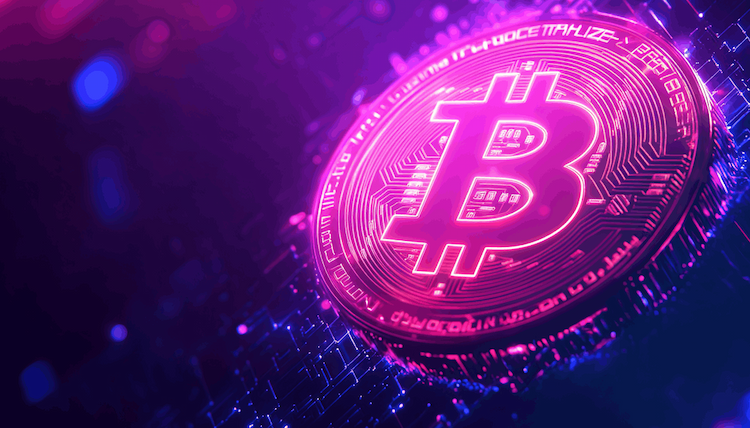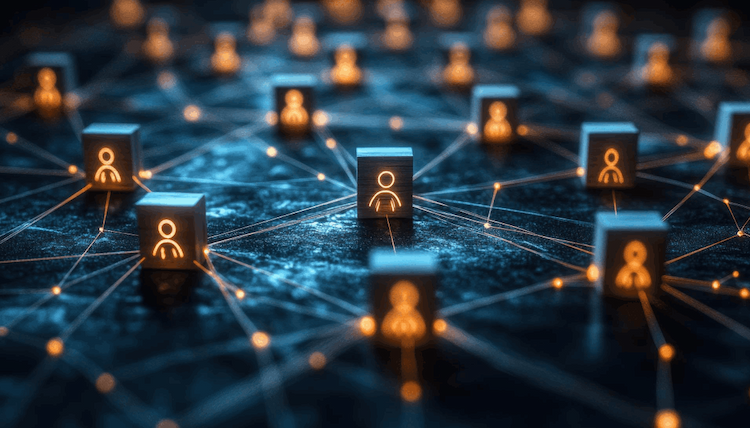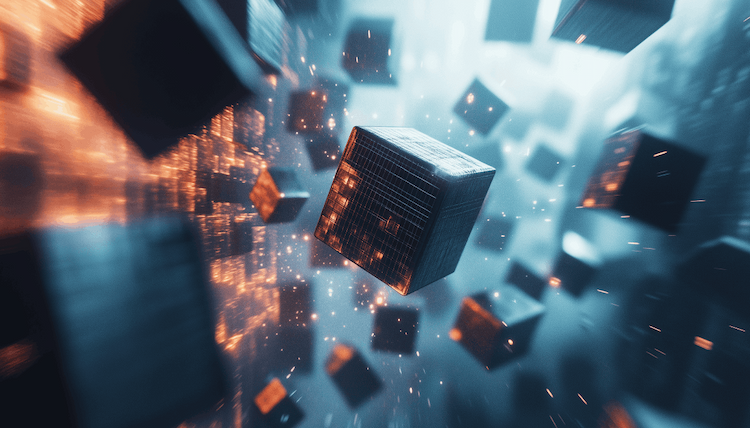
AI and blockchain are reshaping our lives and industries like finance, education, art, gaming, and more. According to PwC's Global Artificial Intelligence Study, AI can potentially transform the global economy, projecting a staggering $15.7 trillion contribution by 2030. This rapid growth in AI adoption is expected to merge with the blockchain industry, forming what is known as the Blockchain AI sector. As both domains continue to emerge and disrupt conventional norms, there is a rising demand for projects that address smart contract optimization, payment systems, data security, logistics management, and process optimization within this space. This article explores three projects at the forefront of bringing AI to crypto: Humans.ai, Fetch.ai, and dotmoovs.
Humans.ai
Humans.ai aims to create a next-generation blockchain platform that brings together various stakeholders in the AI ecosystem. Developers can leverage AI tools to create digital assets and bring their Blockchain AI projects to life.
Humans.ai launched the Humans Blockchain Mainnet in May 2023. This initiative establishes a Blockchain of AIs, utilizing blockchain technology to address AI ownership, governance, and monetization issues. The team advocates for ethical and human-centric AI and blockchain practices without comprehensive regulatory frameworks.
Fetch.ai
Fetch.ai has emerged as a frontrunner in the Blockchain AI domain. The project's main objective is to address challenges in the crypto space by developing AI tools that assist individuals in accomplishing everyday tasks.
This innovation comes as a solution to the pressing security concerns prevalent in the crypto space. In 2023 alone, crypto breaches have resulted in losses of $119 million, primarily due to vulnerabilities in the code and design of decentralized protocols. Fetch.ai's DEX trading tool, designed to focus on individual agents, seeks to mitigate risks of exploitation and protect users from potential loss of funds due to unscrupulous developers.
dotmoovs
dotmoovs takes a unique approach to integrating blockchain and AI into sports through its Sports App powered by AI. The project fosters global healthy competition, enabling individuals to engage in fair assessments and compete worldwide. The dotmoovs app utilizes a proprietary AI system to detect human body movements and various limb positions during specific freestyle football or dance moves in in-game challenges.
Security and privacy are paramount in dotmoovs' development process. The project actively contributes to making blockchain and AI accessible through an engaging and user-friendly app. Moreover, dotmoovs addresses a critical aspect: health and movement. Integrating NFTs and tokenizing the game adds a layer of intrigue for players, making it more appealing to current and prospective users.
Promoting Fair and Transparent AI Training
While blockchain technology can help maintain AI systems' neutrality, it cannot eliminate biases from biased training data. Decentralized systems can track the origin of training data, ensuring transparency.
Conclusion
AI's significant impact on the cryptocurrency space is evident, and the rapid evolution of blockchain technology will further influence the future development of AI. The symbiotic relationship between AI and blockchain is poised to create more projects centered around trading algorithms, fraud detection, mining optimization, and more. As these technologies mature, we can expect even more thrilling and transformative developments in the intersection of AI and crypto.



